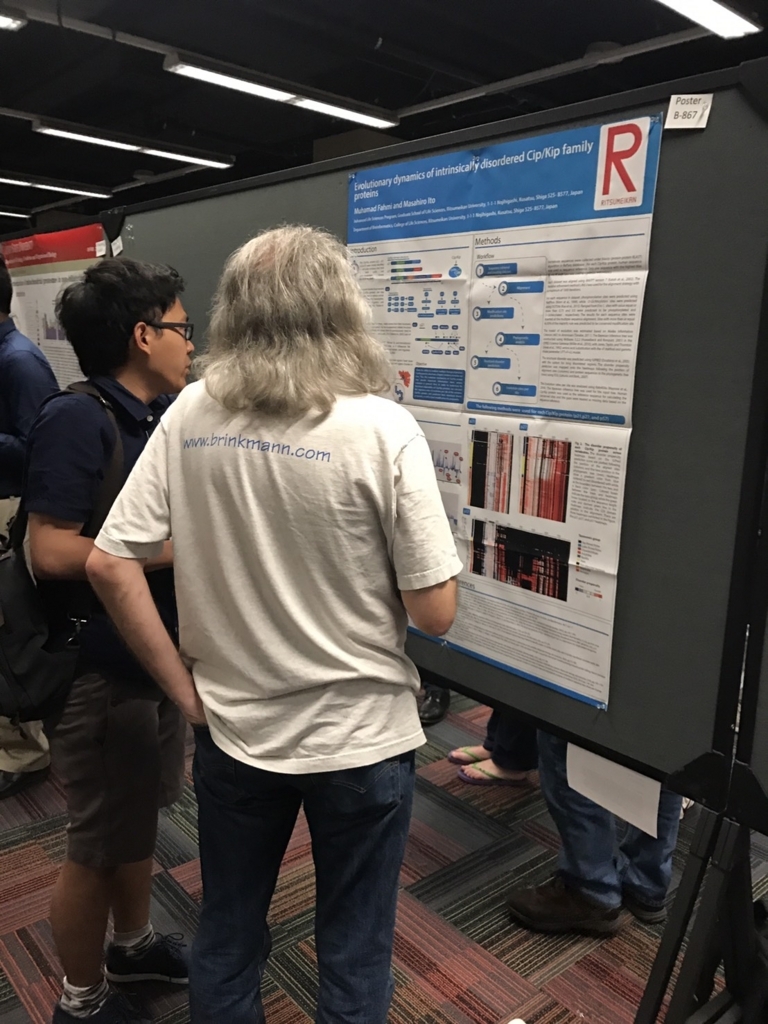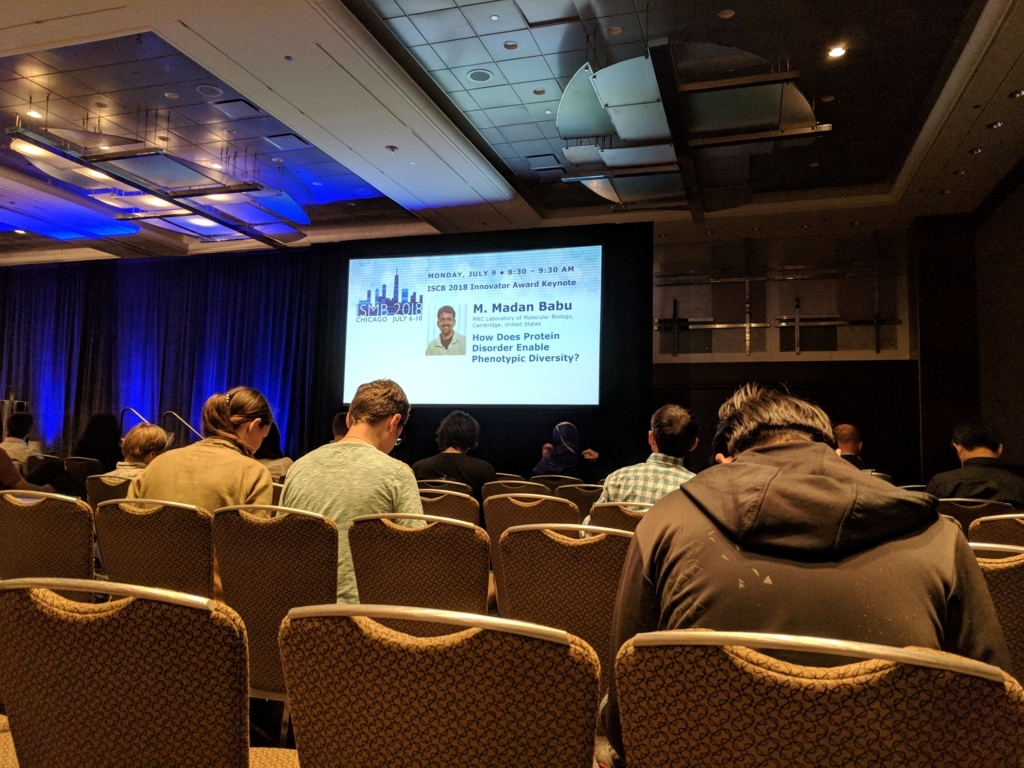ISMB conference (Bulletin 5)
Intelligent Systems for Molecular Biology (ISMB) is the annual international conference held by International Society for Computational Biology (ISCB). It accommodates researcher in developing bioinformatics and computational biology fields to solve molecular biology problems. This year, the conference takes place in Chicago, USA, and we (five people from information biology laboratory under Prof. Masahiro Ito) have an opportunity to participate and present our research progress to the community. It was a wonderful experience for us. Since ISMB have plentiful interrelated tracks to follow, including machine learning, structural biology, ontologies, microbiome, data visualizations, network biology, computational mass spectrometry, regulatory and systems genomics, evolution and comparative genomics, computational modelling, function annotation, medical informatics, integrative RNA and many more, thus we could have a discussion and new knowledge from many viewpoints.


Personally, I think ISMB was a well-organized conference. There were many programs that have been provided by the committee. Before the main conference schedule, there were a student council symposium and workshop which is a part of the ISCB program. The main conference itself, ISMB, was held in four days from 6 to 10 of July. Besides the oral, poster, and keynote presentation, there were also a career fair and art and science exhibition at the conference. I really enjoyed the conference besides the tight schedule of the session of the conference. Since ISCB has developed an app which provides any information related to the conference, we could easily check the schedule and the abstract of the presenters. Moreover, we also could check the slides of the presenters in case we miss the presentation.


In this conference, I presented a poster presentation about the evolutionary dynamics of intrinsically disordered Cip/Kip proteins. Intrinsically disordered proteins (IDPs) are a unique protein. They are characterized by low sequence complexity of amino acid compositional bias, and the high proportion of particular charged and polar amino acids. Those characteristics have made IDPs conformation to be flexible, unable to fold spontaneously into three-dimensional structures. The study on IDPs evolution has been seizing a lot of concern, especially on their amino acid rates of substitution compared to ordered proteins. A vast majority of literature has explained that, generally, the IDPs evolve more rapidly than the ordered proteins. Cip/Kip proteins themselves are IDPs that can accommodate multiple biological roles. Since they are multifunction proteins that have a tendency to evolve rapidly over time, the study on this topic maybe could provide important information about genome evolution in general. On the other hand, one main keynote speaker presentation in ISMB was focus on the IDPs. It was a great pleasure for me, since I could follow the current issues of IDPs study.(MF)